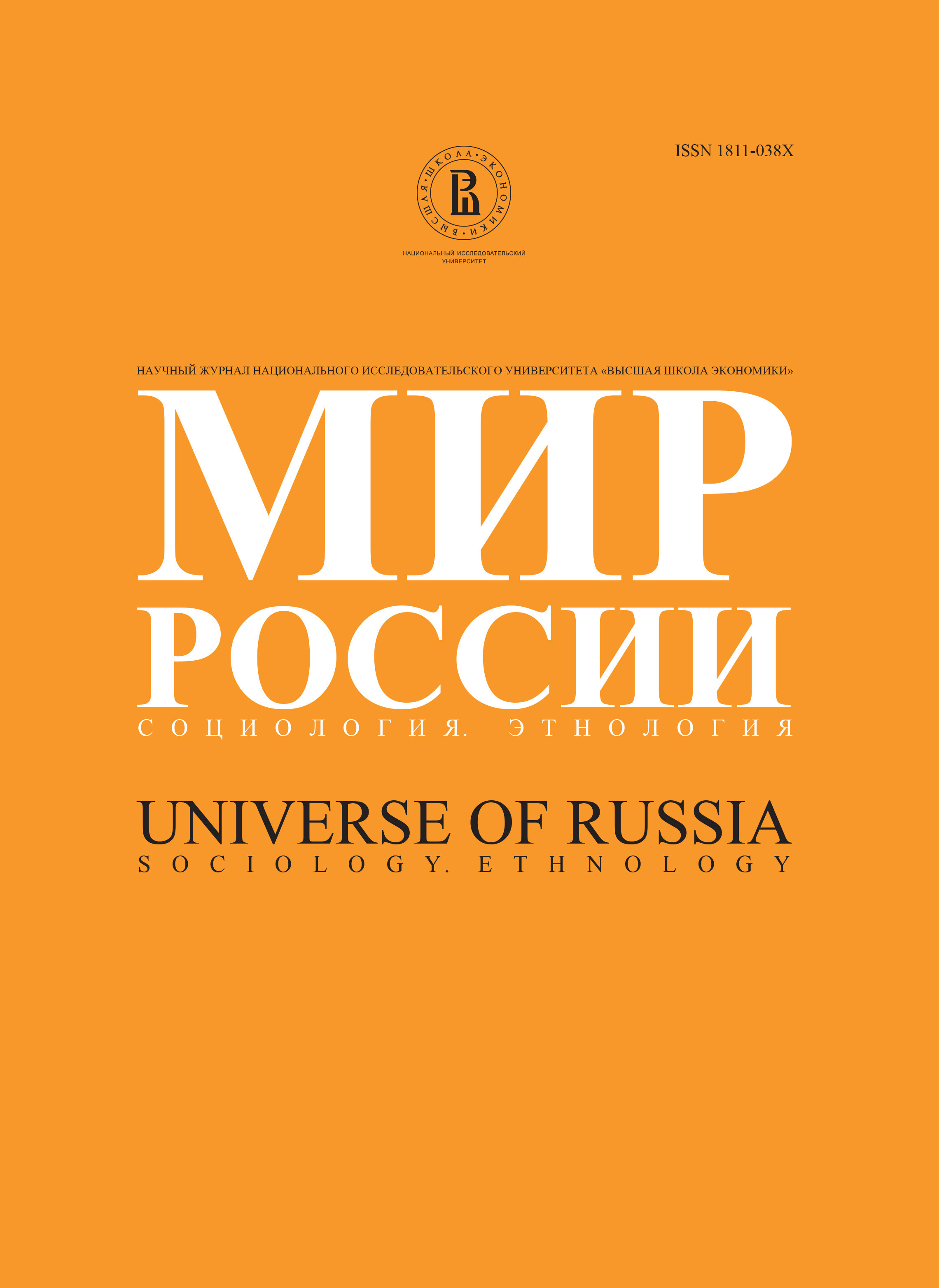Sociology of Bureaucracy in Russia: Pre-Revolution Heritage and the Present Epoch
Abstract
The aim of the article is to analyze the establishment of such a specific branch of sociology as sociology of bureaucracy and to show how the rules of functioning of the administrative machinery within the organization can correlate with the aims and objectives of public service and with the expectations of the population on qualitative public provision. The word ‘bureaucrat’ has a negative connotation in Russian society. Public criticism of bureaucracy demands that researchers not only identify the problem itself, but also analyze those organizational and professional characteristics of civil servants that lead to beadledom and malfunctions of the administrative system. This kind of analysis has become a key factor for sociology of bureaucracy. Analyzing specific features of bureaucracy the author has found some unique and undeservingly forgotten empiric evidence on the social group of bureaucracy in Russian pre-Revolution sociology. The author focuses on theoretical and methodological difficulties of establishing the sociology of bureaucracy in Russia. The article analyzes the results of survey of Russian pre-Revolution bureaucracy. In this connection the following questions have been raised. What is the internal differentiation within this group? Are there any internal conflicts or can we speak about the solidarity within this group? What is the specific of their motivation? What are the means of group defense? What are the peculiarities of corporate psychology? What malfunctions of bureaucracy lead to negative attitude to it? Such an analysis of the professional group of bureaucracy allows to define the basic principles that unify this group and to study the conditions for functioning of the administrative machine in accordance with its public aims and objectives. The problems of modern research of civil servants are similar to the problems of pre-Revolution sociology of bureaucracy. The article provides the comparative analysis of pre-Revolution and modern sociology of bureaucracy. In the conducted comparative analysis of the modern period the author relies on the results of her own research of the specific features of professional group of Russian bureaucracy. While conducting this survey the author used the questions identical to those that were used in pre-Revolution survey. Identification of the similar parameters allowed the author to draw parallels between pre-Revolution and modern sociology of bureaucracy, to describe development tendencies of this professional group and to identify the potential for improving the functioning of administrative machine. The author proves that introduction of any innovations into the system of public administration and the attempts for its rationalization and optimization can lead to unpredictable and sometimes negative consequences unless the mechanism within the ‘guild’ of public officials is thoroughly studied. It is important to achieve the balance between the interests of bureaucracy and the population. Tendencies of social development are becoming the main trend in research of sociology of bureaucracy. Living, social and professional positions of bureaucracy are the obstacle which reforms can only overcome by relying on it as a resource.
Keywords: Russian bureaucracy, sociology of bureaucracy, history of bureaucracy, public sector






